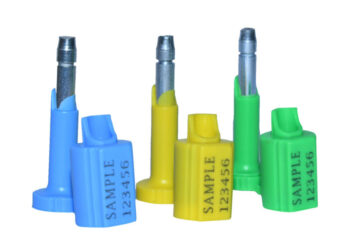In today’s globalized economy, the transportation of goods across borders has become an integral part of business operations. However, with the increase in international trade comes the challenge of safeguarding shipments against tampering, theft, and unauthorized access. This is where ISO 17712 certification plays a pivotal role in ensuring shipment integrity and security throughout the supply chain.
ISO 17712:2013 is an international standard developed by the International Organization for Standardization (ISO) that specifically addresses the requirements for mechanical security seals used on containers. These seals are crucial for maintaining the authenticity and security of shipments during transit. The certification sets forth stringent guidelines for the design, testing, and classification of these seals, thereby establishing a standardized framework for protecting goods in transit.
One of the key benefits of ISO 17712 certification is its role in deterring theft and tampering. Certified seals are designed and constructed to withstand various forms of tampering attempts, including physical force, manipulation, and surreptitious entry. By utilizing ISO 17712-compliant seals, companies can significantly reduce the risk of unauthorized access to their shipments, leading to fewer instances of pilferage and tampering.
Moreover, ISO 17712 certification enhances supply chain transparency. When shipments are secured with certified seals, it becomes easier to track and monitor their movement. The unique identification codes on these seals provide a traceable link between the point of origin and the final destination. This traceability not only aids in real-time tracking but also helps in identifying any irregularities or deviations from the planned route.
ISO 17712-certified seals also facilitate smoother customs clearance. Customs authorities around the world recognize the certification as a symbol of commitment to security and compliance. Consequently, shipments secured with ISO 17712-compliant seals are subject to fewer inspections and reduced scrutiny, resulting in faster clearance times at borders. This not only expedites the movement of goods but also minimizes potential delays and associated costs.
In addition to deterring theft and expediting customs clearance, ISO 17712 certification contributes to overall risk management. By adhering to the certification’s rigorous standards, companies demonstrate their dedication to safeguarding their products. This, in turn, can lead to reduced insurance premiums and improved relationships with insurers, as the implementation of certified seals showcases a proactive approach to risk mitigation.
To attain the full benefits of ISO 17712 certification, businesses must ensure proper implementation and compliance. This involves selecting seals that meet the certification’s criteria, conducting regular inspections and audits, and training personnel in the correct usage of certified seals. Additionally, companies should stay informed about updates to the ISO 17712 standard, as advancements in seal technology and evolving security threats may necessitate adjustments to existing practices.
In conclusion, ISO 17712 certification plays a vital role in ensuring shipment integrity and security across the global supply chain. By deterring theft, enhancing transparency, expediting customs clearance, and contributing to risk management, this certification empowers businesses to navigate the complex landscape of international trade with confidence. As the world of commerce continues to expand, embracing ISO 17712 standards is not only a strategic advantage but a necessity to protect the flow of goods and maintain the trust of partners and customers alike.












